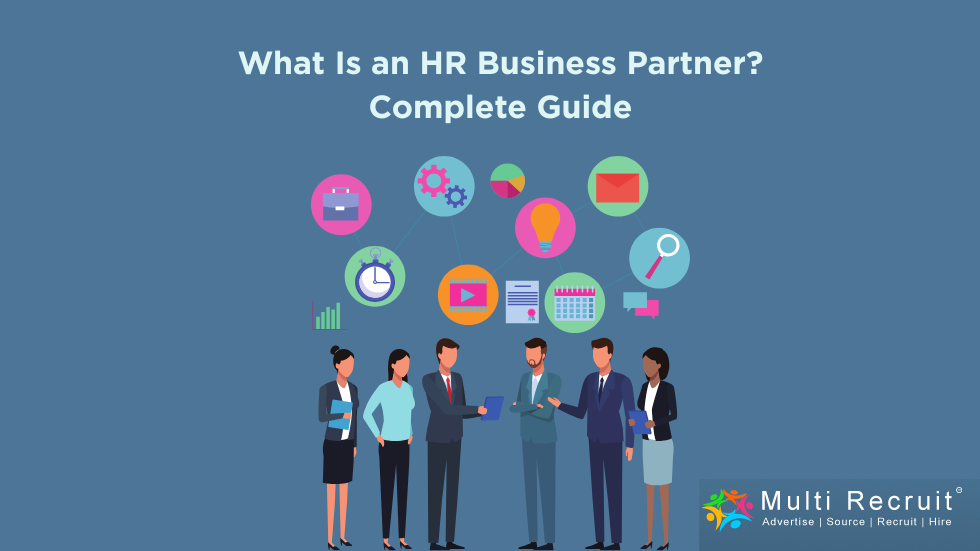The HR Business Partner (HRBP) role has evolved into a critical strategic function, shaping organizations in an era of rapid change. As businesses navigate 2025’s challenges—hybrid work, digital transformation, and a focus on employee well-being—HRBPs serve as vital links between HR and business objectives. This guide explores the HRBP role, its responsibilities, required skills, and its impact on the future of work, offering insights for professionals aiming to excel in this dynamic field.
Defining the HR Business Partner
An HR Business Partner is a strategic HR professional who collaborates with business leaders to align human resources strategies with organizational goals. Unlike traditional HR roles focused on administration, HRBPs act as consultants, using data and insights to drive workforce performance and organizational success. Introduced by Dave Ulrich in the 1990s, the HRBP model emphasizes partnership, enabling HR to contribute directly to business outcomes. In 2025, HRBPs are essential in addressing talent shortages, fostering inclusive cultures, and leveraging technology to enhance efficiency.
Core Responsibilities of an HR Business Partner
HRBPs balance strategic and operational tasks, working closely with executives and teams. Their key responsibilities include:
- Strategic Workforce Planning: HRBPs align HR initiatives, such as hiring or training, with business objectives, ensuring the workforce supports goals like market expansion or innovation.
- Talent Management: They oversee recruitment, retention, and succession planning, using analytics to identify skill gaps and predict future needs.
- Employee Engagement: With 59% of global employees disengaged, HRBPs implement feedback tools, recognition programs, and wellness initiatives to boost morale.
- Change Management: HRBPs guide organizations through transitions, such as adopting AI tools or restructuring, by providing training and managing resistance.
- Diversity, Equity, and Inclusion (DEI): They champion DEI by developing policies and training to reduce bias and foster inclusive workplaces.
- Performance Optimization: HRBPs collaborate with managers to set performance metrics, align individual goals with company objectives, and address underperformance.
- Compliance and Risk Mitigation: They ensure HR policies comply with evolving labor laws, minimizing legal and ethical risks.
Essential Skills for HRBPs in 2025
To succeed in 2025, HRBPs need a robust skill set combining technical, interpersonal, and strategic capabilities:
- Data Literacy: Proficiency in HR analytics tools like Tableau or SAP SuccessFactors enables HRBPs to analyze turnover, recruitment, and engagement data for informed decisions.
- AI and Tech Savvy: Familiarity with AI-driven HR tools, such as chatbots or predictive analytics, streamlines processes. In 2025, 73% of HR tasks involve technology.
- Emotional Intelligence (EI): High EI helps HRBPs build trust, resolve conflicts, and empathize with diverse stakeholders, fostering collaboration.
- Business Acumen: Understanding financial metrics, market dynamics, and operational goals allows HRBPs to align HR strategies with business priorities.
- Influential Communication: Clear, persuasive communication ensures HRBPs gain executive buy-in and convey complex ideas to diverse audiences.
- Cultural Competence: Sensitivity to diverse perspectives strengthens DEI efforts, creating environments that attract and retain top talent.
- Adaptability: HRBPs must navigate shifts like hybrid work policies or new regulations, ensuring HR remains agile and effective.
The Value of HRBPs in 2025
HRBPs are uniquely positioned to address 2025’s workplace challenges. They tackle talent scarcity, with 68% of organizations struggling to hire, by optimizing recruitment strategies. They enhance employee well-being, a priority for 88% of workers, through mental health programs and flexible policies. By leveraging AI and analytics, HRBPs save time on administrative tasks, focusing on high-impact initiatives like culture-building. Their strategic input directly impacts profitability, employee satisfaction, and organizational resilience.
Path to Becoming an HRBP
Aspiring HRBPs typically need a bachelor’s degree in HR, business, or a related field, with 40% holding master’s degrees for advanced roles. Experience in HR roles like recruiter or generalist is crucial, providing exposure to recruitment, employee relations, or compliance. Certifications like SHRM-CP, PHR, or CIPD boost credibility. To prepare for 2025, consider:
- Upskilling: Take courses in HR analytics, AI, or change management via platforms like AIHR or LinkedIn Learning.
- Networking: Join SHRM or local HR groups for mentorship and industry insights.
- Hands-On Experience: Lead projects like workforce planning or DEI programs to build strategic expertise.
- Continuous Learning: Stay updated on trends like ESG or hybrid work through HR publications and webinars.
Challenges and Opportunities in 2025
HRBPs face challenges like managing remote team dynamics, addressing burnout, and navigating complex compliance landscapes. Yet, these create opportunities to innovate. AI tools can automate repetitive tasks, freeing HRBPs for strategic work. Prioritizing DEI and well-being builds loyal, diverse teams, giving organizations a competitive edge. By staying agile, HRBPs turn challenges into growth opportunities.
Why HRBPs Are Critical in 2025
In 2025, HRBPs are more than HR professionals—they are strategic partners driving business success. Their ability to blend people strategies with business goals makes them indispensable in fostering innovation, inclusion, and adaptability. As organizations face talent competition and technological shifts, HRBPs lead the way in creating workplaces that thrive.
How can Multi Recruit help?
- Streamlined Recruitment: Multi Recruit’s AI-driven tools simplify talent acquisition, enabling HR Business Partners to source and onboard top candidates efficiently.
- Strategic Focus: By automating repetitive tasks, Multi Recruit frees HRBPs to prioritize high-impact areas like employee engagement and DEI initiatives.
- Industry Insights: Access to 2025 workplace trends and expert resources empowers HRBPs to align people strategies with business objectives.
- Inclusive Workforce: Multi Recruit supports HRBPs in building diverse, resilient teams through data-driven recruitment and inclusion-focused solutions.
Conclusion
The HR Business Partner role is a cornerstone of organizational success in 2025, blending HR expertise with strategic vision. From talent management to cultural transformation, HRBPs shape the future of work, addressing modern challenges with agility and insight. By mastering key skills and embracing trends like AI and DEI, HRBPs unlock their potential to drive impact. At Multi Recruit, we’re dedicated to supporting HRBPs with innovative recruitment solutions and resources to excel in this transformative era.
